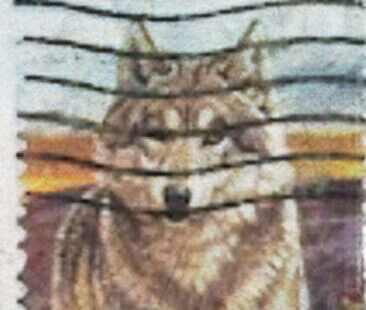Jeffrey Harpeng
The Lark Ascending
after Vaughn Williams
Early summer, and over a shoulder of macadamia branches the upper spears of a palm frond are feathers in a head-dress. Clouds of a peace-pipe drift over. They are just clouds. They have a pact with the green.
My father is in the garden, with a half-smoked durrey pinched out and tucked behind his ear for later. The weary valves of his heart give him pause. His eyes, in the shade of a gray felt hat, worn through where it peaks at the front, consider the order he has made; green rows of staked tomatoes, beans trained up the diamond grid of Cyclone wire, mounded potatoes . . .
He’s been dead for twenty-five years. He plucks that pinch of tobacco from behind his ear, lights up and draws deep. I stand in the garden with my coffee going cold.
The Lark Ascending . . .
from the speaker in the window
violin ascending
in the garden shrill with insects
a magpie lark follows me
white moths are ashes
of the sun’s fire glistening
on leaves and leaf fall
as I rake macadamia
and weeds yet to bloom
last night’s bath water
waters basil and parsley
my mother’s father
and my father both set crops
days before they died
white moths are ashes
in shadows and deeper
macadamia shadows
Dives and Lazarus
hovers in my ears
Listening to Vaughn Williams, I am as if strung and bowed by the airs and haunts, the shimmering ascents of the music, rephrasing folk songs and biblical stories. The joyous mournfulness is full of men working in the fields, women in the kitchen, childish wonder, the making of babies, old men telling stories, fragility and dying. Those airs rise and fall among the susurrus of insects and the quivering chatter, the cracked and chipped cooing whistle of a butcher bird. Flower to flower there are bees in the garden.
Editor’s Note: “The Lark Ascending” originally appeared in the first issue of Modern Haibun & Tanka Prose (Summer 2009). When responding for permission to reprint, Jeffrey shared the letter below, which he submitted for publication:
. . . Regarding your request, I am most happy to see “The Lark Ascending” reprinted.
For the last few years, I have been focused on non haibun or tanka prose poetics, and have just completed a document, which I have just sent to some other poets for an editorial look over. The working title is “Sleep-Walking Through an Extinction.” Despite the title, it is not total bleakness, but the title gives a necessary background to our lives.
With the fires now raging across Australia, that extinction has been greatly accelerated with an estimated 500 million animals killed in the fires. Farmers have run out of ammunition putting down fire injured livestock and wildlife.
I was talking a couple of nights ago to a friend in Akaroa, just south of Christchurch in New Zealand and she said that the previous day they had nearly zero visibility because of the smoke, which had drifted some two thousand miles across the Tasman Sea.
I am reminded of that sentence by Theodor Adorno, lifted from a larger context: “To write poetry after Auschwitz is barbaric.” My instinct is to insert “the bush fires” where it reads Auschwitz. The toll on the animal world is massively greater, and still conservative politicians here, though responding to a disaster, as something simple as a flood or an earthquake, they want to push climate change/global warming into the background.
Sorry to be beating the drum, but there is a great weight of anxiety upon us mere citizens here.
sun and moon
both bloodshot, stare – then
in a devilish wink
the hot iron glow of day
in a minute turns to night
We wandered around YouTube hypnotized by the spectacle, see tornadoes of fire, and are truly spooked by a soundbite reported from a boat anchored offshore “In two minutes the temperature went from 29C to 48C.” When they later go ashore, their homes are twisted roofing iron resting on charcoal black.
the white ash
hot underfoot – behind the man
a mouth of fire
from a tree stump glanced
by the camera the man cries
Yours in sadness,

About the Author
Jeffrey is an erratic autodidact, a fossicker in the ocean of notions.
